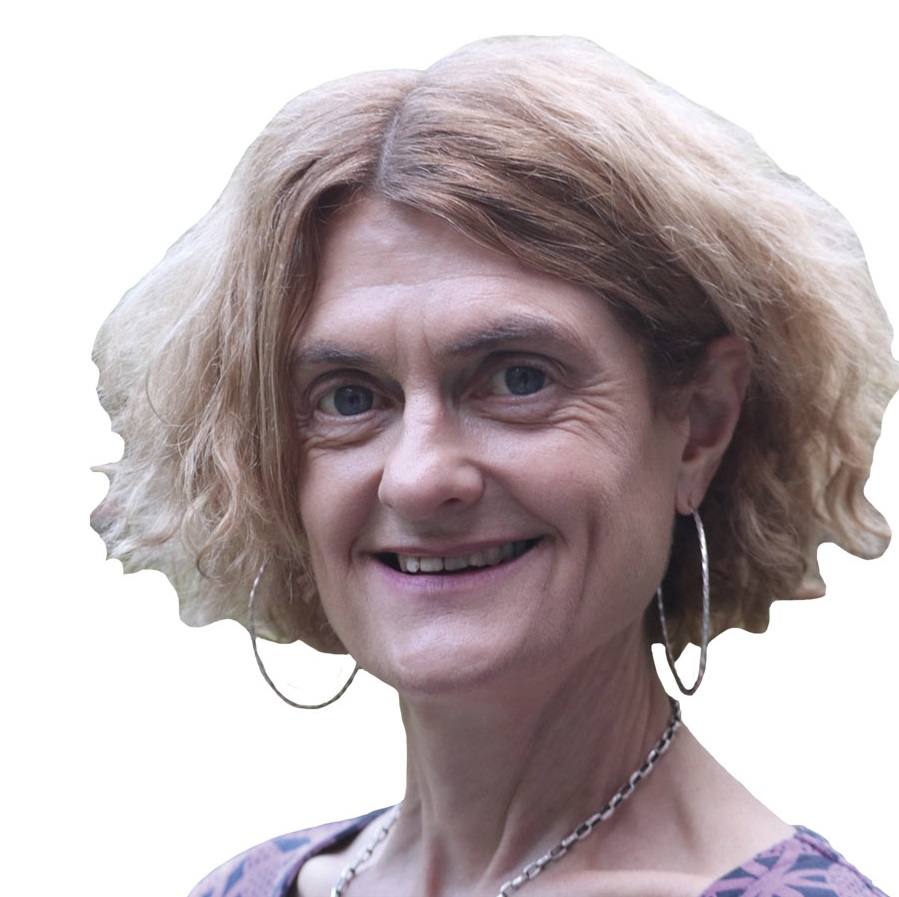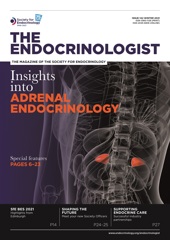In this article, I touch on a range of experiences of living and ageing as a female adult with classical salt-wasting congenital adrenal hyperplasia (CAH). I was born in 1963 and have met and worked with many adults with CAH, both nationally and internationally. Ageing is a gradual process. We age in different ways: some we can influence, some not, but the earlier people with CAH engage in holistic dialogue about the ageing process, the greater our chances of improving our long term outcomes for well-being and quality of life.
AVAILABILITY OF SUPPORT
Understandably, the medical and scientific community has focused on improving the treatment of CAH, and achieved widespread impact. Thanks to these efforts, the long term complications of CAH are better understood today. Moreover, partnership between the medical community and support groups has brought much positive change for the physical and mental health of people with CAH.
However, sadly, the attention given to the older cohort of people with CAH has been far from holistic, perhaps because CAH is a rare condition, for which treatment with glucocorticoids only started in the mid-1950s. Many women with CAH experience feelings of shame and stigma, and these feelings continue throughout the life course.
More change is needed. People with CAH want to meet others with the same condition. The transformative impact of coming together should not be underestimated. This needs to happen on a universal and sustained basis that is embedded in the wider care pathway. Thus, we share ways to take care of ourselves based on experience, and we help each other to believe we are worth taking care of, and that we do have some control in improving our own health outcomes, especially as we age. Peer support helps to heal those painful, concealed parts of ourselves that we have never shared; it helps us internalise the belief that we don’t need to accept poor health and diminished lives.
MANAGING CAH
Common concerns of adults with CAH include:
- Loneliness and isolation
- Fertility and reproduction
- Increased impact of stress as we age
- Osteoporosis
- Complications from early surgeries
- Struggles at work
- Menopause
- Difficulties with medication
- Feelings of shame
- Lack of access to endocrinologists with sufficient knowledge of CAH
- Poor body image
Added complications come with co-morbidities. I was diagnosed with rheumatoid arthritis (RA) at the age of 50, and this added a new dimension to managing my own health and well-being. Having already lived with disability, I did not experience the trauma of a new diagnosis, and it has been a relief to have a condition that it feels OK to be open about, in spite of common misunderstandings about the impact of living with RA.
It has and always will be difficult to tell people I have CAH. I have had to find my own way to manage this co-morbidity, not least because, while many adults with CAH also have an inflammatory condition, getting an understanding from the medical profession on how the conditions interact has been challenging. In my experience, aspects of the two conditions can mimic each other; flare-ups of RA impact the adrenals and vice versa.
CARE OF YOUNG PEOPLE: PAST AND PRESENT
I have been fortunate in the care I have received. I could be critical of the abuse received at the hands of medics as a child and adolescent, some of which were specific to having CAH. However, much of this was mirrored in the treatment of many disabled children in the 1960s and 1970s. Most painful and unacceptable is the fact that much of this abusive practice continues today, though now there is no ‘excuse’, as clinical guidelines exist – as does extensive literature on trauma, early surgery and the long term impact of adverse childhood experiences.
WORKING TOWARDS A BETTER FUTURE
There is no doubt endocrinologists are passionate about improving their patients’ quality of life. I owe a debt of gratitude, as do so many others with CAH, to the multidisciplinary teams that have saved our lives, advanced the research and tirelessly worked to improve care and treatment.
However, to bring about further improvements in our health and well-being, a stronger partnership is needed with those with CAH and groups supporting people with a range of variations of sex characteristics. Healthier, happier, more fulfilled and well informed adults with CAH help relieve an already overloaded NHS. With the right support, we can manage much of our own care ourselves. Drawing on clinical, peer and personal resources helps us find what works for us, both collectively and individually, especially as we age.
We need a new dialogue in which we are not seen as having a disease, being disordered or in need of fixing, a dialogue that recognises the pride in the difference that girls and women with CAH have, so that we can embrace all parts of ourselves without shame and secrecy, and thus start the process of healing and ultimately true self-care and love.
KAZ WILLIAMS
Adult Support Co-ordinator [email protected]
CAH Support Group






